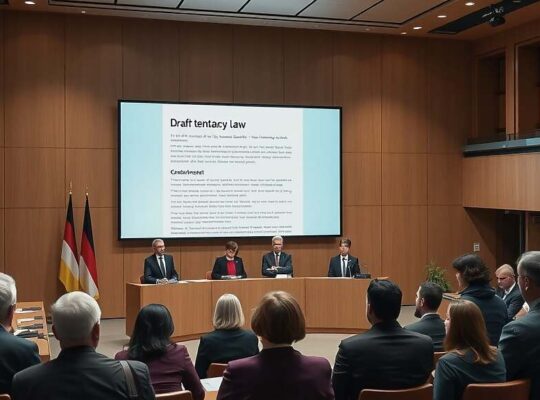Report Highlights Deteriorating Conditions and Rising Frustration
A new report from the German Chamber of Industry and Commerce (DIHK) paints a stark picture of the nation’s entrepreneurial landscape, revealing a significant decline in the attractiveness of Germany as a founding location and sparking concerns about the future of innovation.. The findings, released amidst a broader government modernization agenda, underscore a growing disconnect between the aspirations of aspiring entrepreneurs and the realities of operating a business in Germany.
The report indicates that nearly six in ten founders now express dissatisfaction with the conditions for launching and running a business, a seven-percentage-point increase from last year. Worryingly, the proportion of “very dissatisfied” founders has almost doubled over the past two years, representing a more negative assessment than even during the COVID-19 pandemic. This disillusionment is manifesting in a stagnation of founding interest, with the number of initial consultations with DIHK advisors reaching a near-historic low.
While the findings encompass a wide variety of founding ventures, from online shops to craft businesses and IT firms, consultancies are increasingly encountering entrepreneurs driven by necessity rather than pure ambition. A significant increase in individuals seeking self-employment as a response to job losses in crisis-affected industries is contributing to this trend. For women, the desire for greater flexibility remains a prominent motivator, with a welcome surge in the number of women seeking founding advice, nearing parity with men – a considerable shift from two decades ago.
The root of the problem, according to founders themselves, lies in a pervasive “jungle of regulations and ordinances”. The complexity of the bureaucratic processes, numerous authorities and intricate rules, all contribute to feelings of uncertainty and frustration, particularly during the often-critical initial phase. Beyond administrative hurdles, founders cite escalating taxes, soaring energy and labor costs and inadequate digital infrastructure as significant impediments to entrepreneurial success.
DIHK President Peter Adrian has voiced serious concerns about the implications of these findings. “Founders are the engine of our economy” he stated. “If we lose their dynamism, we lose our future”. Adrian stressed the need to modernize the German economy, acknowledging that the government’s modernization agenda offers a potential pathway, but cautioning that it must be implemented decisively.
The report’s findings correlate with criticisms leveled by Verena Pausder, Chairwoman of the German Startup Association, who emphasized the need for accelerated processes and improved access to capital, particularly for startups relying heavily on equity financing to scale their operations. While government efforts to streamline the company formation process, aiming for a 24-hour turnaround, are welcome, the DIHK and industry advocates are pressing for greater speed in areas like tax registration and permit issuance.
Ultimately, the evidence suggests that while the entrepreneurial drive within Germany remains strong, a substantial and concerted effort is needed to alleviate the bureaucratic and economic burdens that are threatening to stifle innovation and drive potential founders elsewhere. The future dynamism of Germany’s economy hinges on addressing these concerns and fostering an environment where entrepreneurial ambition can truly thrive.












